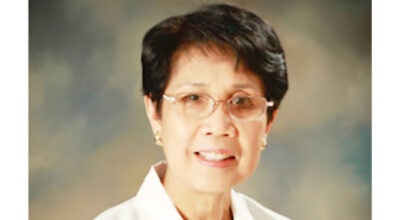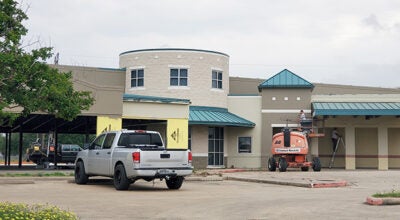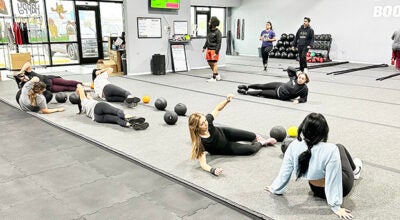Community looks to tackle sexual assault, rape culture and improve message to victims
Published 12:38 am Saturday, April 30, 2022
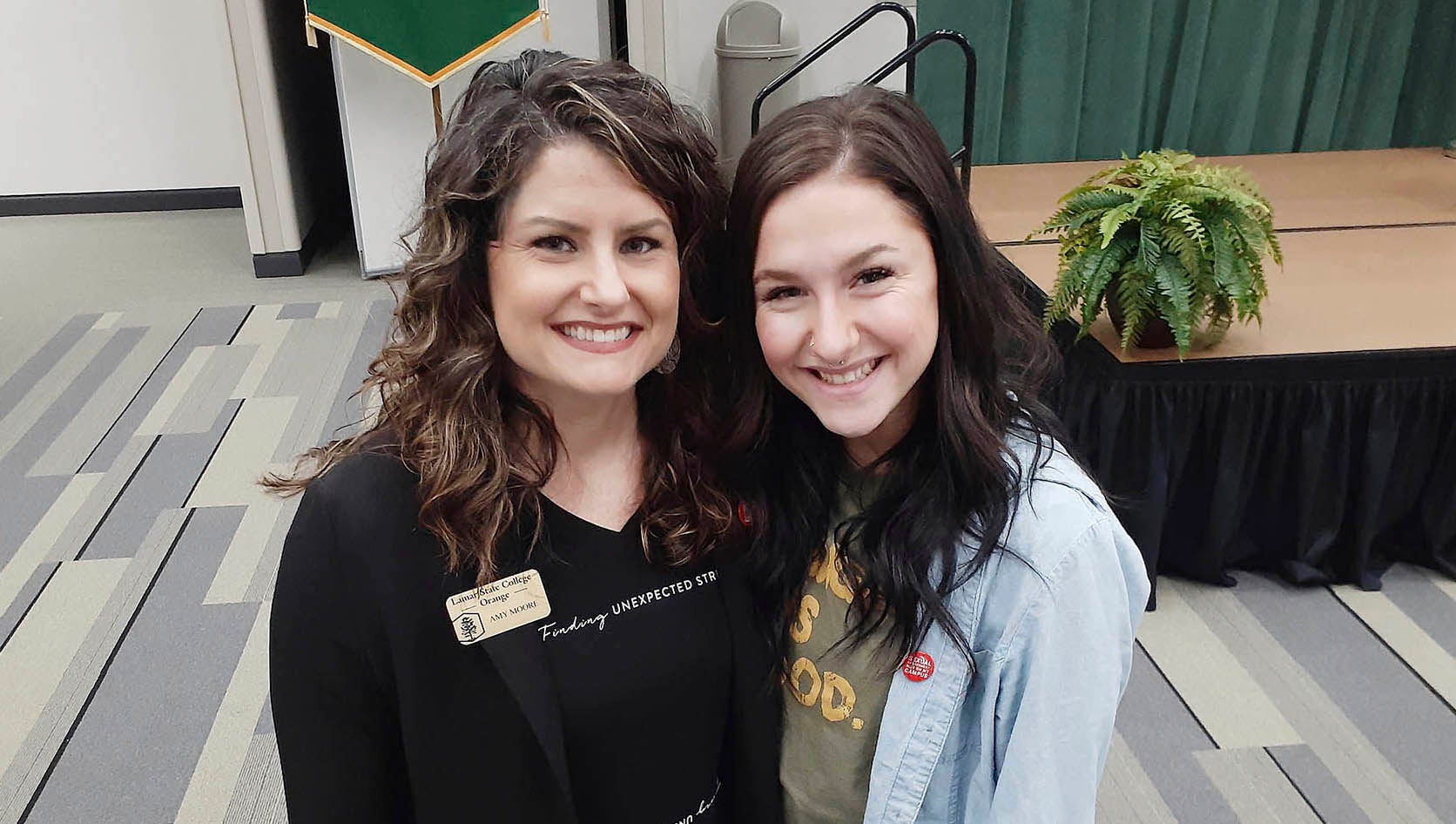
- Amy Moore and Aubrey Moore take a break for a picture following the conclusion of a Denim Day presentation on the campus of Lamar State College Orange. (Stephen Hemelt/The News)
|
Getting your Trinity Audio player ready...
|
Amy Moore closed Denim Day with a simple but powerful message.
“Thank you for being here,” said the Lamar State College Orange director of student life. “I know a lot of this was hard to hear. It is hard to talk about, but it is important. Because you have been here, you are going to make an impact in this world. I appreciate you.”
The Denim Day gathering played to a packed room on campus where two survivors of sexual assault spoke. They were flanked by representatives of organizations operating in Orange and across the Golden Triangle that offer the counseling and reporting services needed by survivors.
Moore said sexual assault has impacted her family, and she encourages sexual assault survivors to recognize the power of sharing their story.
Moore’s daughter, Aubrey, is a victim of assault, and “when she was able to tell her story, several of my closest friends sent me private messages and said, ‘I’ve never told anybody but that happened to me, too.’”
“Telling your story is going to change lives,” she said. “That is going to impact other people. That is how we change the culture. That is how we make a difference.”
Many of the attendees at Denim Day were college students studying to enter fields where they are going to deal with sexual assault fallout.
“Everybody here has an opportunity to impact somebody just by listening to their stories,” Moore said. “How can we, as a community and as a college, work better together to help those around us?”
Moore thanked her daughter, who spoke this week, for being her personal hero.
Aubrey Moore, 19, is pursuing a career in forensic nursing.
She takes solace in knowing this week’s event brought together people in the community who are willing to reach out, even if it is for one person who wants to make an outcry.
“This is going to help so many people, and people don’t even realize that,” she said after the event. “I have people almost every month who text me, call me and tell me something like what I went through has happened to them. I am going to have peers come up to me later and they will say, ‘this happened to me.’
“Then, I can say, ‘did you talk to this group? Did you find out where all you can go for help?’ If not, I get to do that. I get to help people and I’m not in my profession yet. I’m still 19 years old. The fact that I am going into a career where I get to do that is something I love.”
Culture change
Brittany Piper served as the featured speaker, going into unflinching detail about her own sexual assault, the two-year legal process for her case to reach a judicial sentencing and how true change won’t come until “rape culture” is addressed as a community.
She stressed how important it is to change from sympathy to empathy with rape survivors.
“Sympathy says, I am sorry that happened to you. That’s life,” according to Piper. “Empathy says, I am sorry that happened to you. What can I do to help carry this pain? How can I support you? Empathy requires effort. Empathy requires connection, listening, understanding and, oftentimes, discomfort. It requires more.”
Understanding and better defining consent with sexual encounters is key.
She stressed permission is sober, readily given, consciously given, willingly given. It is continuous. It’s revocable, and it’s absolutely mandatory.
A breakdown that must be understood by both parties includes:
- Consent is voluntary, it’s mutual and it can be withdrawn at anytime. Regardless of past experience with a person, consent has to be given every single time.
- There is no consent when there is force, intimidation, coercion and manipulation.
- A person under the influence cannot consent.
- Just because they don’t say no doesn’t mean consent was given.
- Consent goes beyond physical touch
- If someone does not and cannot consent to sex, then it is rape.
She said a culture of sexual violence and aggression, often connected to pornography must be addressed and discussed at an early age.
According to Piper, 24 percent of youth ages 5 to 12 receive unwanted pornographic exposure. 93 percent of boys 12-17 are exposed to pornography, and it’s 60 percent for girls.
Too often, Piper sees female sexuality based on submission and male sexuality based on domination.
She said this is one of the reasons why one in five women experience some form of sexual violence on a college campus.
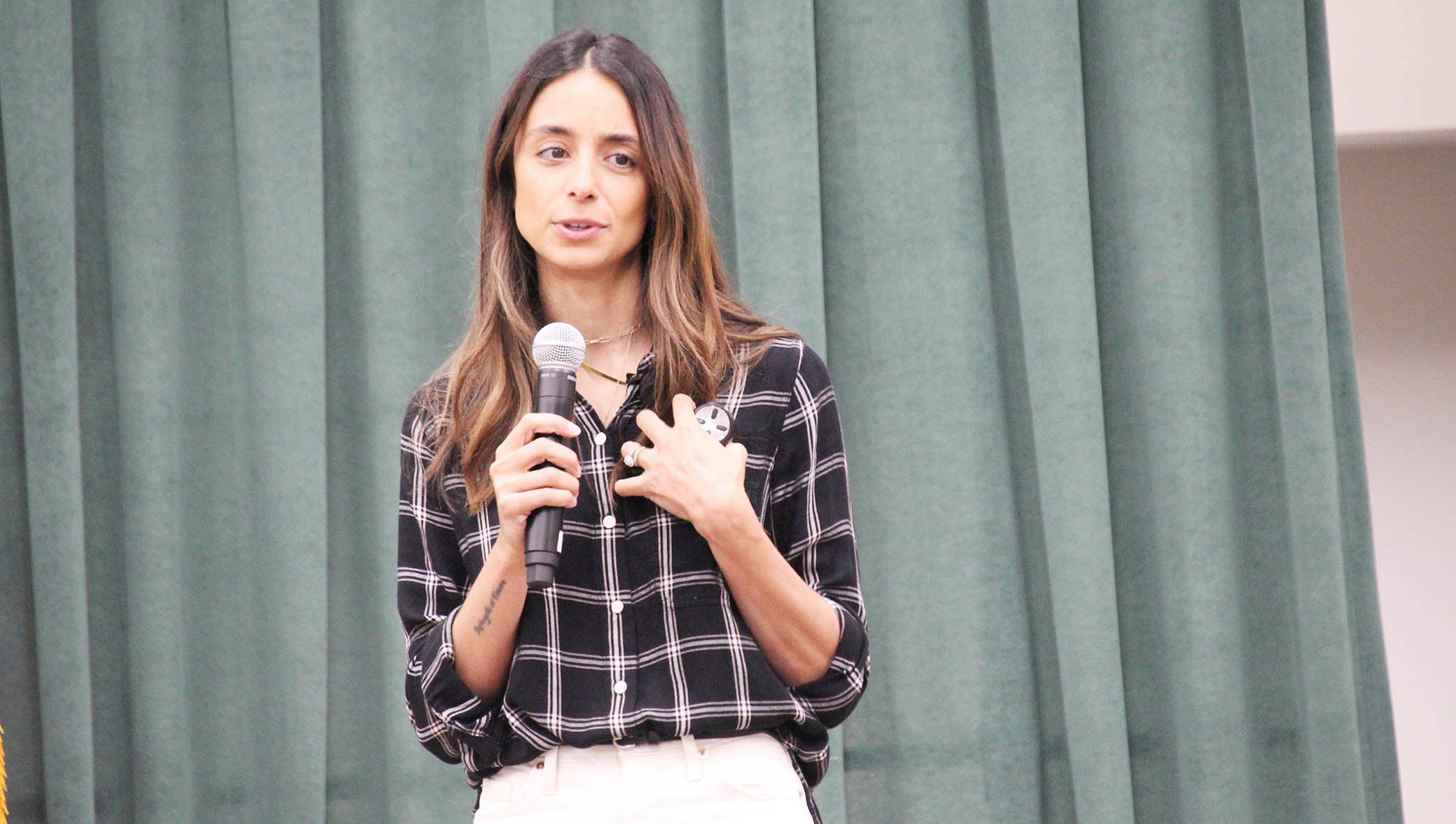
Brittany Piper talks to an Orange audience about her experience with rape and how she is helping change the way community members talk about the issues related to sexual violence. (Stephen Hemelt/The News)
Her story
While in college, a man helped her change a flat tire on Piper’s vehicle.
He would not take money but asked for a ride home.
After ending up down a dimly-lit road, she was brutally raped and beaten with a tire iron.
Following the perpetrator’s arrest, Piper went through a two-year legal process that eventually saw the man sentenced to 60 years in jail.
The experience led her to substance abuse and depression, and 30 days after sentencing, she herself was arrested for battery on a officer with injury, intimidation and resisting arrest when she lashed out at an officer during a DWI stop for her boyfriend.
“The road to recovery does not have to look polished and pretty and perfect,” Piper said. “Whether or not I was stoic on that stage or in a puddle of tears on the ground, I was still just as strong in both of those cases.”
She pointed out how her sexual assault was covered my local media, pointing to one online story that ended with the line from police: “She was uncomfortable about the situation from the beginning and she didn’t really want to give him a ride. She probably should have trusted her instincts at that point.”
That was final and lesson learned, according to Piper: “I should have made a better choice. I was, in part, to blame and I was, in part, responsible.”
She finds it unacceptable today, especially knowing the people from her community took the tone of the article and ran with it by commenting negatively underneath.
“What this article should have said, instead, was: He was likely aware of his violent sexual desires and he should have trusted his better judgment to not rape her.”
“The difference is the ownership, accountability and focus is on him and his actions and not me,” Piper said. “This is how we have gotten to a place where victim blaming is supreme.”


